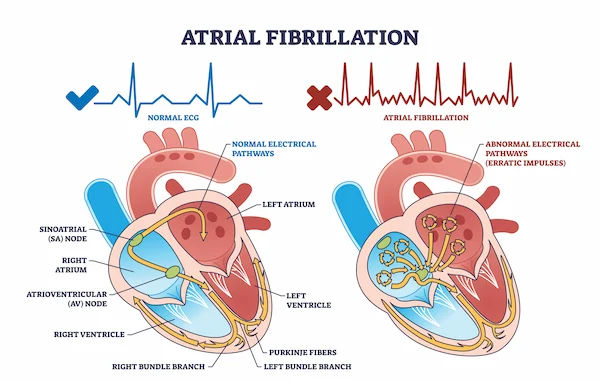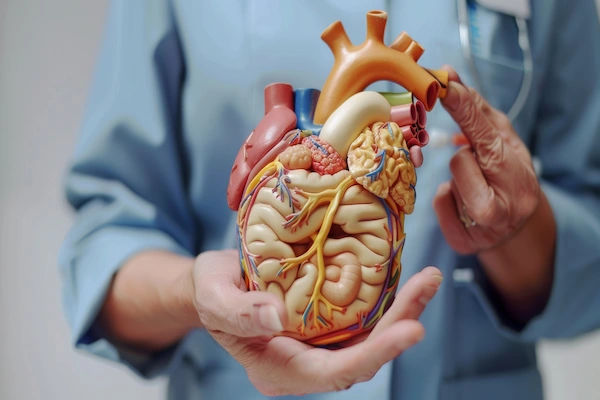- male
- 45 Years
- 22/01/2025
My blood pressure has been pretty high recently, and I'm trying to figure out what could be causing it. Are there certain foods or habits I should avoid to help get it under control? Like, how long would it typically take to see a difference if I make changes to my diet and lifestyle? Im really hoping to get it down in a matter of weeks if possible.
Answered by 1 Apollo Doctors
High blood pressure (BP) can be caused by factors like genetics, obesity, physical inactivity, smoking, excessive sodium intake, stress, and certain medications. To lower BP in weeks, focus on lifestyle changes: exercise regularly (aim for 30 minutesday), reduce sodium intake (
Dr. Shubham Suggests...
Consult a Cardiologist
Answered 04/07/2025
0
0

More Cardiology Health Queries
View allI'm really worried because my cholesterol levels are super high. What can I do right away to bring them down?
take low fat diet, have regular physical activity,maintain healthy lifestyle,you will bhe fine,main your BMI less than 25.
Answered by 1 Apollo Doctors
I'm worried about a high troponin level of 22.4. Can this be treated with medication, or does it mean I need to be admitted or go through some kind of procedure?
See a specialist for accurate diagnosis and targeted treatment.
Answered by 1 Apollo Doctors
I'm experiencing some worrying symptoms like left side chest pain and vomiting. I'm not feeling hungry and sometimes my heart starts beating really fast all of a sudden. It's even affecting my sleep. I've already had an echo and TMT done, and they didn't show anything wrong, but I'm still concerned. Could this be something serious? What should I do next?
Ecg and cardiac markers are advised to the patient.
Answered by 1 Apollo Doctors
Disclaimer: Answers on Apollo 247 are not intended to replace your doctor advice. Always seek help of a professional doctor in case of an medical emergency or ailment.




